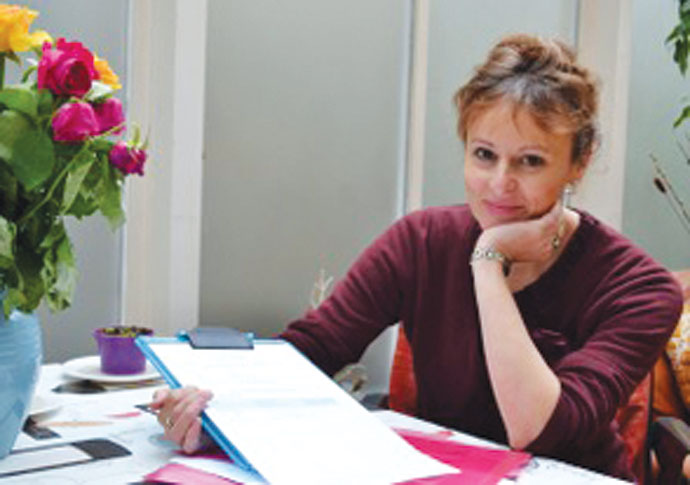55 percent of teenagers not in Camden's schools as families go private
Meet The Parents organisation has called on council to win back parents
Tuesday, 6th September 2022 — By Richard Osley

Marcus Boyland is the new education chief at the Town Hall
PARENTS of more than half of Camden’s teenagers are shunning the borough’s secondary schools, it has been revealed, as campaigners called on more to be done to break down “myths” and “rumours” about state education.
Council figures show that 55 per cent of pupils at this age had either gone private or were educated somewhere else in London.
Town Hall chiefs have now been urged to investigate where children are going after completing their primary school years and how they can attract families back.
Nearly 40 per cent of teenagers living in Camden are now learning in fee-paying schools at secondary level, a cross-party scrutiny committee on education was told.
Madeleine Holt, who leads the Meet The Parents organisation which works to encourage people to choose state schools, told a meeting that that parents needed to be encouraged to step inside comprehensives to break down their “fears”.

Madeleine Holt
Her group organises events that links Camden’s primary and secondary schools and told the committee that there was evidence that “we win over aspirational parents and we are making a difference”.
Ms Holt said: “I think the glass is half full. There are so many positive elements unique to Camden that if we brought them together could actually change the trajectory and ensure that we can boost the school role and change the sometimes rather gloomy predictions that we hear about.”
She added: “The key factors in our experience running with parents are a fear amongst some families of what state schools are really like. And that’s where our events, which are basically forums, are about trying to give people up to date information and trying to put aside often very old rumours and myths about schools.”
Camden has seen the number of enrolments at all level slide with some schools reorganising to have fewer forms of entry and two primaries closing altogether in the last three years. Housing costs and a low birth rate have been blamed, but it has now emerged that thousands are still in the borough but in private schools.
Ms Holt said that the opportunity was there for families to choose the council-run schools but there needed to be attractive marketing over what they had to offer.
Private schools were under pressure, she added, as universities looked to take on more state school children and employers looked for a more “diverse” background.
Dr Rachel Wrangham, a co-opted member of the committee, said: “I live in the middle of the borough where education and the educational opportunities are simply fantastic. They’re really good. There’s no reason why anybody should choose to send their children outside if you live in the ambit of LSU, Parli [Parliament Hill], Acland Burghley and Camden School for Girls. And yet there are still people who do. So it’d be really interesting to know how many of these low-hanging fruit families are still choosing to send their children away and why.”

Labour councillor Julian Fulbrook
Holborn and Covent Garden ward councillor Julian Fulbrook said there was also a problem with geography and that children in the south of the borough had no obvious route to a Camden secondary school, telling the committee that “at the last count children from four primary schools go to 36 secondary schools in 16 different boroughs.”
He added: “We [Camden] have some of the best schools in the country but all in one ward – Highgate – and it’s not spread out.”
But Cllr Fulbrook, who has spent a career in academia at the LSE, also told the meeting: “The reason parents pay a great deal of money is to try and get a preferential inside track for certain universities and that is a terrible scar on the face British equality.”
He added: “It’s something universities have tried to deal with over time, and not always very successfully. It’s absolutely essential that we get the best kind of education in the state system for everyone and that includes hopefully parents who can think more wisely about the future for their children, which isn’t just about exam success and getting into certain universities. It’s about being good citizens.”
New schools chief Marcus Boyland said he agreed with Ms Holt’s campaign, but added: “I think at the moment we’ve got a bit of a handle on falling rolls. It’s kind of stabilising a bit, but it’s something we do need to keep an eye on going forward.”
He said he thought Camden schools were “absolutely fantastic” but had asked officers to look at gaps in the transfer between primary and secondary schools and what private schools were offering that Camden – “if anything”, he said – didn’t.